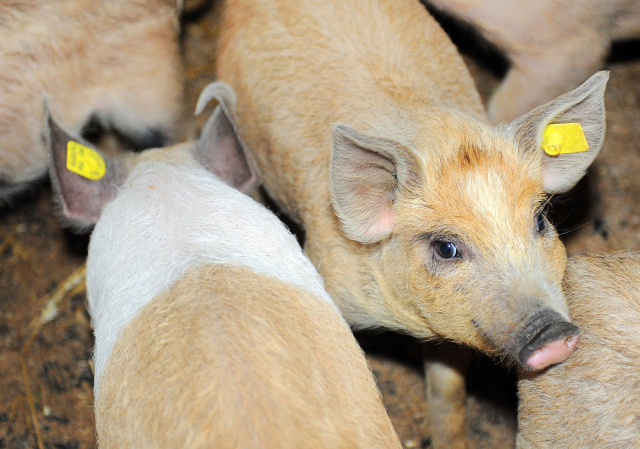African swine fever grabs the authorities’ attention
The African swine fever spreads in Romania, in spite of the measures taken by the authorities

Corina Cristea, 30.08.2018, 12:20
With some 800 outbreaks of African swine fever confirmed in one-quarter of its counties, Romania struggles to stop the spreading of the worst animal disease epidemic since WW2. The toughest measure is to kill all the pigs in the areas where the virus has been confirmed. The process is under way, among other places, at a farm in Braila County in the south-east, which is the largest in Romania and the second-largest in Europe. Roadblocks are also in place, to stop people from taking the animals or animal products out of the affected areas, and a decision was made to allow the hunting of wild pigs and jackals in the Danube Delta, which also carry the virus.
But in spite of these measures, the disease is spreading quickly, because there is no treatment or vaccine, says the president of the National Veterinary and Food Safety Authority, Geronimo Raducu Branescu. He explained that the African swine fever is a disease with morbidity and mortality rates of up to 100%. It is currently active in the Baltic States, Poland, the Czech Republic, Hungary, Romania, Ukraine, Russia, the Republic of Moldova and Italy, and some countries have managed to contain it after decades of efforts and at huge costs, Geronimo Raducu Branescu also said. In Spain, for instance, it took 30 years and enormous expenditure to control it.
In Romania, over 100,000 pigs have been slaughtered so far, and the losses are substantial. President Klaus Iohannis, who requested that compensations be paid as quickly as possible to those affected, argued that the inadequate handling of the situation by the authorities brought many local producers to the verge of bankruptcy.
Bucharest has requested financial support from the European Commission in order to counter the effects of the African swine fever, and the Agriculture Minister Petre Daea promised compensations to the owners of the animals that had to be killed. The long-term consequences of the outbreak are devastating for small farms, major meat processors and the entire Romanian agri-food industry: unemployment, panic, distrust in meat processing units, deeper trade deficits, and expenses for compensations and for farm restocking.
The crisis hits not only the private sector, but also the Romanian state, which has invested massively over the past 10 years in order to increase competitiveness and to be able to export pork to the EU market, after 14 years when exports from Romania had been banned.
(translated by: Ana-Maria Popescu)






























